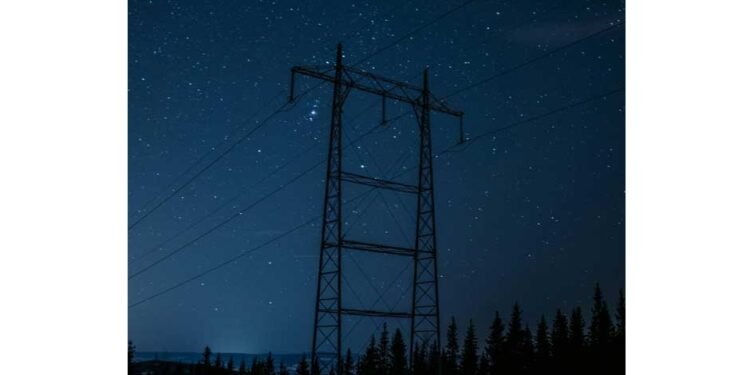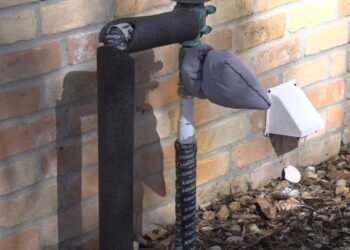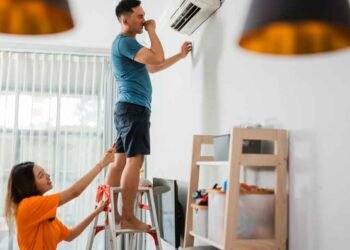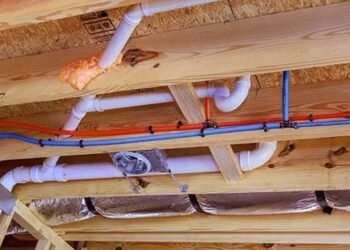Did you know that the outage management system market is projected to reach $2,858.12 million by 2031? This reflects the growing need for efficient solutions to handle power disruptions.
Power outages can happen anytime, leaving homes dark and unsafe. They may be caused by bad weather, equipment failure, or other issues. These outages can disrupt daily life and put safety at risk.
The best way to stay safe is to prepare in advance. With the right steps, you can reduce risks and handle outages better. Here’s how to keep your home safe before, during, and after a power outage.
Preparing Your Home Before a Power Outage
The best defense against the chaos of a power outage is preparation. Start by conducting a walk-through of your home.
Consider implementing the following measures:
Check All Emergency Lights and Flashlights
Check all emergency lights and flashlights to make sure they work. Replace dead batteries and keep extras on hand. Store flashlights in easy-to-reach places around your home.
Consider using rechargeable emergency lights for longer use. Test your backup lighting to avoid surprises. Having reliable light sources can help prevent accidents in the dark.
Keep an Emergency Supply Kit
Keep an emergency supply kit ready at all times. Include essentials like water, non-perishable food, and a first-aid kit. Pack extra batteries, candles, and a battery-powered radio.
Store important documents in a waterproof bag. Make sure to have enough supplies for at least three days. Check and update your kit to keep it stocked.
Invest in a Generator
Invest in a generator to keep essential appliances running during a power outage. Choose a generator that fits your home’s power needs. Keep it in a well-ventilated area to prevent carbon monoxide poisoning.
Store enough fuel to last through an extended outage. Test your generator regularly to ensure it works when needed. Follow safety guidelines to avoid accidents and electrical hazards.
Identify a Safe Space in Your Home
Identify a safe space in your home for emergencies. Choose an area away from windows and doors. Make sure it has enough space for all family members.
Stock it with emergency supplies like water, snacks, and blankets. Keep a flashlight and a battery-powered radio nearby. Practice using this space so everyone knows where to go.
You might also want to consider using an emergency checklist. This will help you stay organized and prepared. It ensures you don’t forget important supplies and safety steps.
Check Your Smoke Alarms
Test smoke alarms regularly to make sure they work. Replace old batteries at least once a year. Install alarms in key areas like bedrooms and hallways.
Keep extra batteries on hand for emergencies. Consider using interconnected alarms for better coverage. A working smoke alarm can save lives during a power outage.
Develop a Safety Plan
Write down the safety plan and keep copies in easy-to-find places. Make sure everyone knows the location of emergency supplies. Plan different evacuation routes in case you need to leave quickly.
Practice the safety plan with all family members. Assign roles so everyone knows their responsibilities.
Review and update the plan regularly. A well-prepared family can respond calmly during a power outage.
Review Your Insurance
Review your insurance policy to see if it covers power outages. Look for coverage on damages caused by power loss. Contact your provider if you need more information.
Update your policy if necessary for better protection. Keep a copy of your insurance documents in a safe place.
Understand what types of losses are covered, such as spoiled food or appliance damage. Ask about coverage for temporary housing if needed. Having the right coverage can help you recover faster after an outage.
Staying Safe During a Power Outage
During a power outage, following a few simple guidelines can help ensure your safety. Here are some tips to help you:
Create a Communication Plan
Creating a communication plan helps your family stay connected during a power outage. Make a list of important phone numbers, including emergency contacts. Choose a designated family member to check in with everyone.
Use text messages instead of calls to save battery life. Keep a portable charger or power bank for your phone. Practice your plan so everyone knows what to do in an emergency.
Limit Opening the Refrigerator and Freezer
Limit opening the refrigerator and freezer to keep food cold longer. Only open the door when necessary.
A closed refrigerator can keep food safe for about four hours. A full freezer can maintain its temperature for up to 48 hours.
Consider using a cooler with ice packs for frequently used items. Check food for spoilage before eating after a long outage.
Stay Tuned to Local News for Updates
Stay tuned to local news for updates during a power outage. Use a battery-powered or hand-crank radio to get information. Check official websites and social media for emergency alerts.
Listen for updates on weather conditions and power restoration. Follow instructions from local authorities to stay safe. Staying informed helps you make better decisions during an outage.
Protecting Your Home
Protecting your home during a power outage is important for safety. Lock all doors and windows to prevent break-ins. Use solar or battery-powered security lights to deter intruders.
Keep valuables in a secure place. Inform a trusted neighbor if you need to leave your home. A well-protected home can help prevent theft and damage.
Unplug Electronics
Unplug electronics as soon as the power goes out. Sudden power restoration can cause voltage spikes. Keep devices like TVs, computers, and chargers disconnected.
Use a surge protector for essential appliances. Avoid plugging everything back in at once when power returns. This helps prevent electrical damage and reduces fire risks.
Stay Warm or Cool
Stay indoors to avoid extreme temperatures. Close curtains and doors to trap heat in winter. Use blankets and sleeping bags for extra warmth.
In summer, stay in shaded or lower areas of your home. Drink plenty of water to stay hydrated. Avoid using gas stoves or ovens for heat, as they can be dangerous.
Conserve Water
Fill bathtubs and large containers with water before an outage. Use disposable plates and utensils to reduce dishwashing. Flush toilets only when necessary to save water.
Store drinking water in clean, sealed bottles. Keep a supply of water purification tablets for emergencies. Monitor water usage to make it last as long as possible.
Prepare Alternative Cooking Methods
Have a manual can opener for non-perishable food. Choose simple meals that require little cooking. Keep matches or a lighter in a waterproof container.
Never use a gas stove or oven to heat your home. Cook away from flammable materials to prevent fires. Clean cooking equipment after use to avoid attracting pests.
Be Cautious of Strangers
Do not open the door for unknown visitors. Ask for identification before speaking to utility workers. Report suspicious activity to local authorities.
Keep outdoor lights on if you have battery-powered or solar options. Inform family members not to answer the door for strangers. Staying alert helps protect your home from potential threats.
Limit Movement
Limit movement and stay indoors if possible. This helps keep you safe during a power outage. It also allows you to monitor your home for security threats.
Staying inside reduces the risk of accidents or injuries. If you must leave, use a flashlight to see in the dark. Always stay aware of your surroundings. Inform family members before stepping outside.
After the Power Outage
Once the power is restored, it’s crucial to check your home and appliances for potential issues. Here are some tips to help you.
Inspect All Electrical Appliances
Inspect all electrical appliances before turning them on. Look for visible damage or unusual signs. Unplug devices that were in use when the power went out.
Wait until power is stable before reconnecting them. Check cords and plugs for burns or fraying. Test appliances one at a time to avoid overloading circuits.
If an appliance sparks or smells burnt, do not use it. Have a professional inspect damaged electronics. Taking precautions can prevent electrical hazards and fires.
Monitor Your Food Supply
Monitor your food supply after a power outage. If the refrigerator was off for more than four hours, check perishable items.
Throw away food that smells bad or looks spoiled. When in doubt, it is safer to discard it. Do not taste food to check if it is safe.
Use a food thermometer to check the temperature of stored items. Frozen food that still has ice crystals may be safe to refreeze. Restock your food supply once power is restored.
Reset Your Clocks and Devices
Power outages can reset clocks and electronic devices, which may cause confusion. Check and adjust the time on alarm clocks, microwaves, ovens, and wall clocks. Reset security systems and smart home devices, as they may not function after an outage.
If you use medical devices like CPAP machines, ensure they are running correctly. Test all electronic timers, especially for sprinklers, lighting systems, and appliances.
If any devices fail to restart, troubleshoot or replace their batteries. A quick reset helps restore normal routines and prevents missed alarms or scheduled tasks.
Check Your Water Supply
If your home uses an electric water pump, test faucets for water flow. Turn on cold water first to clear any trapped air in the pipes. If your water pressure is low or inconsistent, it may indicate an issue with the plumbing.
Check for leaks in pipes, especially if temperatures were low during the outage. If the water appears discolored or has a strange odor, let it run for a few minutes until it clears.
In case of contamination, boil water before use or follow local water safety advisories. Keeping an emergency water supply ensures you have clean water for drinking and hygiene.
Restock Emergency Supplies
After using items from your emergency kit, make sure to replace them immediately. Check expiration dates on food, medicine, and batteries to ensure they are still usable. Replenish bottled water, non-perishable food, and first-aid supplies for future emergencies.
Store extra flashlights, candles, and matches in easily accessible locations. If you use a portable radio, refill or recharge its batteries. Keeping your emergency kit stocked helps you stay prepared for the next power outage.
Be Aware of Electrical Surges
Power surges can occur when electricity is restored, potentially damaging appliances and electronics. To prevent damage, keep appliances and devices unplugged for a few minutes after power returns.
Turn devices back on gradually, starting with essential ones like refrigerators and heaters. If lights flicker or you notice sparks from outlets, contact a reliable electrician immediately.
Inspect surge protectors to ensure they are functioning properly. If your home experiences frequent outages, consider investing in a whole-house surge protector for added protection.
Check Outdoor Areas
Inspect the exterior of your home for any damage caused by the outage. Look for fallen power lines or tree branches that may have affected electrical wiring. Never touch downed wires-report them to the utility company immediately.
Check fences, gates, and outdoor structures to ensure they are secure. If you have outdoor security cameras or lights, verify they are operational. Walk around your home to identify any potential safety hazards.
Communicate with Neighbors
Checking on neighbors, especially the elderly or those with medical conditions, is important after a power outage. Make sure they have food, water, and any necessary medications. Share information about local resources, such as emergency shelters or food distribution centers.
Offer assistance if they need help resetting appliances or cleaning up debris. If your community has a neighborhood watch or emergency group, coordinate efforts to ensure everyone is safe. A strong community makes recovery from power outages easier and more efficient.
Plan for Future Power Outages
Reflect on what worked well and what could improve your emergency response. Update your family’s emergency plan if needed. Being proactive will help make future outages less stressful and easier to manage.
Restoring Peace of Mind After an Outage
Power outages can be inconvenient. But with appropriate measures and a clear plan, your home can be secure even in the most challenging situations.
Focus on safety by preparing your home in advance, establishing communication strategies, and incorporating reliable backup solutions. Following these guidelines will not only keep your residence safe but will also restore peace of mind for you and your loved ones.
Don’t forget to explore our other articles. There’s a wealth of knowledge waiting for you on our site.












